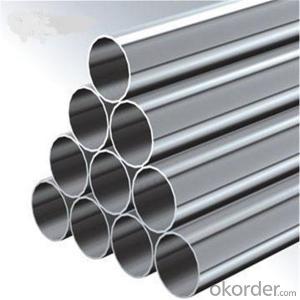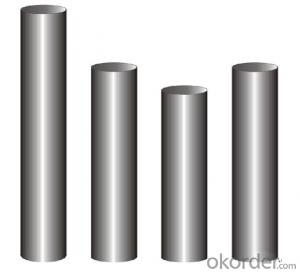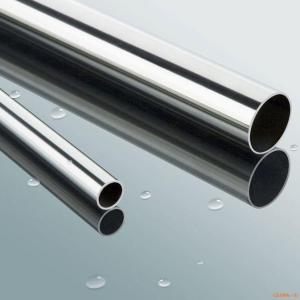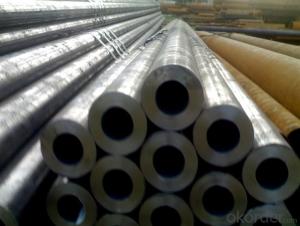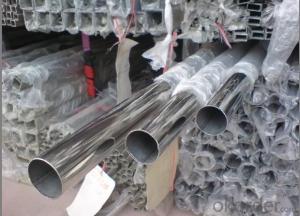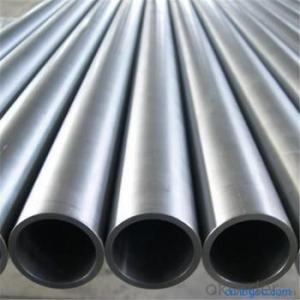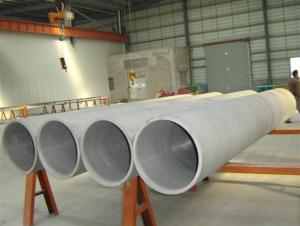SS 316 stainless steel round pipe price list
- Loading Port:
- Shanghai
- Payment Terms:
- TT OR LC
- Min Order Qty:
- 5 m.t.
- Supply Capability:
- 3800 m.t./month
OKorder Service Pledge
OKorder Financial Service
You Might Also Like
Item specifice
Specification
High quality 304,316 stainlesss steel bar square & round in stock
1.Competitive price and quality
2.Delivery fast
3. Material grade: 201,202,304,316,316L,430
4. Main material:
a) 201 (Ni0.8%-1%)
b) 202 (Ni: 3.0%-4.0%)
c) 304 (Ni: 8% Cr: 18%)
d) 316 (Ni: 10% Cr: 18%)
Outer diameter:5mm-550mm or as your requirement
Length: 6m or as your requirement
Surface:Bright, Polished, Turn smooth(Peeled),Brush, Mill,Pickled
Chemical Composition
Material
Composition | 201 | 202 | 304 | 316L | 430 |
C | ≤0.15 | ≤0.15 | ≤0.08 | ≤0.035 | ≤0.12 |
Si | ≤1.00 | ≤1.00 | ≤1.00 | ≤1.00 | ≤1.00 |
Mn | 5.5-7.5 | 7.5-10 | ≤2.00 | ≤2.00 | ≤1.00 |
P | ≤0.06 | ≤0.06 | ≤0.045 | ≤0.045 | ≤0.040 |
S | ≤0.03 | ≤0.03 | ≤0.030 | ≤0.030 | ≤0.030 |
Cr | 13-15 | 14-17 | 18-20 | 16-18 | 16-18 |
Ni | 0.7-1.1 | 3.5-4.5 | 8-10.5 | 10-14 | |
Mo | 2.0-3.0 |
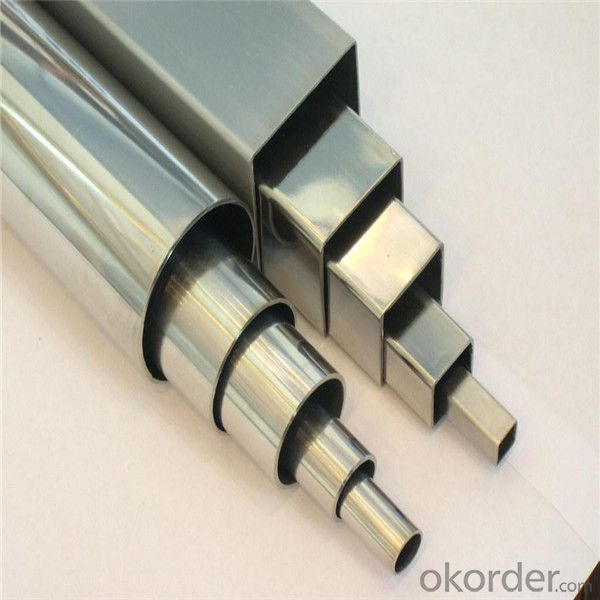
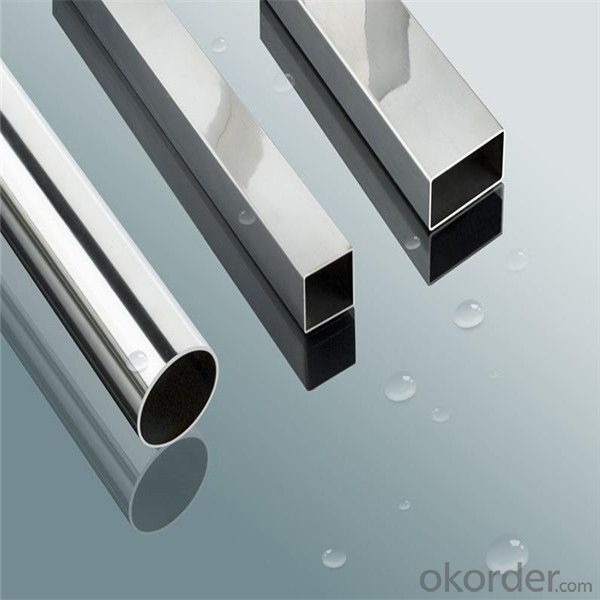
Application
Widely used in petroleum, Foodstuff, chemical industry, construction, electric power,
nuclear energy, biotechnology, machinery, papermaking, shipbuilding, boiler fields etc.
Maintentance
(1) Regular cleaning and maintenance
(2) Pay attention to prevent the occurrence of the phenomenon of surface scratches
(3) Use soap, weak detergent or warm water to remove surface dust, dirt
(4) In addition to the surface of the binder with alcohol or an organic solvent (ether, benzene)
(5) Use neutral detergent or ammonia solution in addition to surface oil
(6) With 10% nitric acid or abrasive detergent in addition to the surface of the embroider
caused by the dirt
Packaging & Delivery
In bundle or as per customer’s requirements
30 days after receipt the 30% downpayment or draft of irrevocable L/C at sight
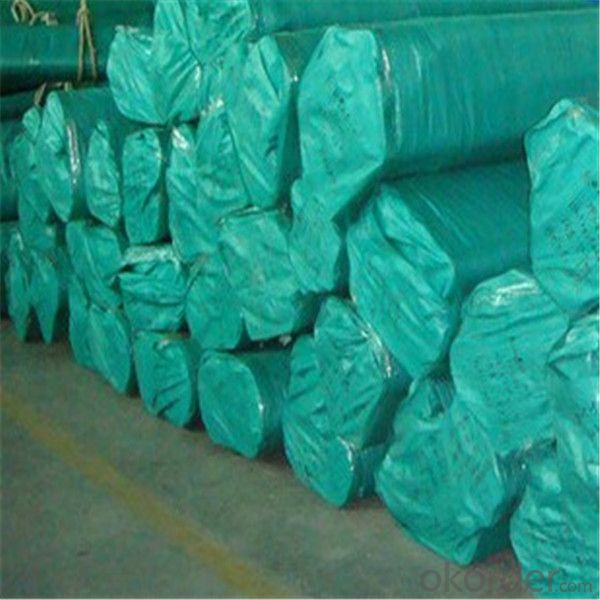
We offering:
Quality Products
More Competitive Prices
Fast Delivery
Quick Reply
Sincere Service
Featured products:
Alloy steel: Combination of steel / Bearing steel// Spring steel/ Cr- mo steel
GB 20Cr/ 40Cr / 42CrMo / 35CrMo/ 20CrMn/GCr15/30CrMnTi…
ASTM 5120 /5140 / 4140/ 4135/ 5152/52100…
JIS SCr420H/ SCr440/ SCM3/ SUP9/SUJ2…
Carbon steel: Carbon tool steel /Carbon Structural Steel
GB 20/ 35 /45/…
ASTM 1020/ 1030/1045…
JIS S20C/ S30C / S45C…
Products Show
- Q:What is the chemical composition of stainless steel pipes?
- Stainless steel pipes are primarily composed of iron, with a minimum of 10.5% chromium content. Other elements such as nickel, manganese, carbon, and small amounts of other elements are also present in varying quantities depending on the specific grade and intended application of the stainless steel.
- Q:Can stainless steel pipes be insulated with polyetherimide?
- Yes, stainless steel pipes can be insulated with polyetherimide. Polyetherimide is a high-performance thermoplastic material that can withstand high temperatures and is known for its excellent thermal insulation properties. It can be used as an effective insulation material for stainless steel pipes, providing thermal protection and preventing heat loss or gain.
- Q:What is the difference between Schedule 30 and Schedule 40 stainless steel pipes?
- Schedule 30 and Schedule 40 are two different classifications of stainless steel pipes based on their wall thickness and pressure ratings. The main difference between Schedule 30 and Schedule 40 stainless steel pipes lies in their wall thickness. Schedule 30 stainless steel pipes have a thinner wall compared to Schedule 40 pipes. The wall thickness of Schedule 30 pipes is generally less than that of Schedule 40 pipes. This means that Schedule 30 pipes have a larger internal diameter compared to Schedule 40 pipes for the same nominal size. The thickness of the pipe walls directly affects the pressure rating and strength of the pipe. Schedule 40 stainless steel pipes are designed to handle higher pressure and have higher structural integrity due to their thicker walls. They are commonly used in applications where high-pressure fluids or gases are being transported, such as in industrial settings or for plumbing systems in commercial buildings. On the other hand, Schedule 30 stainless steel pipes are typically used in applications where the pressure requirements are lower. They are suitable for applications with more moderate pressure demands or where the fluid being transported does not require a higher pressure rating. In summary, the main difference between Schedule 30 and Schedule 40 stainless steel pipes is their wall thickness, with Schedule 40 pipes having thicker walls and higher pressure ratings compared to Schedule 30 pipes. The choice between the two depends on the specific requirements of the application, including the pressure and fluid being transported.
- Q:Are stainless steel pipes suitable for water treatment plants?
- Yes, stainless steel pipes are suitable for water treatment plants. They are highly corrosion-resistant, durable, and can withstand high-pressure environments. Additionally, stainless steel pipes do not leach harmful chemicals into the water, making them a safe and reliable choice for water treatment applications.
- Q:Are stainless steel pipes suitable for geothermal applications?
- Yes, stainless steel pipes are suitable for geothermal applications. Stainless steel is highly resistant to corrosion and can withstand the high temperatures and pressures present in geothermal systems. Additionally, stainless steel pipes have excellent thermal conductivity, making them efficient for transferring heat in geothermal applications.
- Q:How do you calculate the wall thickness of a stainless steel pipe?
- The wall thickness of a stainless steel pipe can be calculated by subtracting the inner diameter from the outer diameter, and then dividing the result by 2.
- Q:Can stainless steel pipes be insulated with polyamide?
- Yes, stainless steel pipes can be insulated with polyamide. Polyamide is a type of plastic material that is known for its excellent insulation properties. It can be used as a coating or a lining for stainless steel pipes to provide insulation against heat or cold. The polyamide insulation helps in preventing heat loss or gain, which is essential for maintaining the desired temperature of fluids or gases flowing through the pipes. Additionally, polyamide also offers protection against corrosion and mechanical damage, further enhancing the durability and lifespan of the stainless steel pipes.
- Q:What is the difference between seamless and LSAW stainless steel pipes?
- Different industries commonly use seamless and LSAW stainless steel pipes. The manufacturing process and resulting structural characteristics distinguish these two types of pipes. Seamless stainless steel pipes are produced without any seams or welds. Manufacturers achieve this by piercing a solid cylindrical billet and extruding it to create a hollow tube. This technique ensures a uniform cross-section, resulting in a smooth and consistent inner and outer surface. The absence of welds eliminates potential weak points, enhancing the overall strength and integrity of the pipe. Seamless pipes are known for their superior corrosion resistance and are often preferred in critical applications where leakage must be avoided. In contrast, LSAW stainless steel pipes are formed by bending and welding a steel plate or coil into a cylindrical shape. The welding process involves passing an electric arc through the steel plate and the welding filler material, creating a visible seam on the pipe's exterior. LSAW pipes are commonly used in applications requiring large diameters and thick walls, such as oil and gas transportation. They can be produced in longer lengths and with larger diameters compared to seamless pipes. Seamless stainless steel pipes are generally more expensive to manufacture than LSAW pipes due to their complex production process. However, their seamless construction offers superior performance and reliability, making them the preferred choice for critical applications. On the other hand, LSAW pipes provide a cost-effective solution for large-scale projects where the visible seam is not a concern. To summarize, the main differences between seamless and LSAW stainless steel pipes lie in their manufacturing process, structural characteristics, and cost. Seamless pipes are made without seams or welds, providing excellent corrosion resistance and strength. LSAW pipes, on the other hand, are created by bending and welding a steel plate, offering a cost-effective solution for large-scale projects. The choice between these two types of pipes depends on the specific requirements of the application and the desired balance between cost and performance.
- Q:Are stainless steel pipes suitable for desalination plants?
- Yes, desalination plants can use stainless steel pipes. Desalination plants are facilities that are designed to remove salt and other impurities from seawater or brackish water in order to produce freshwater. In order to withstand the harsh conditions of the desalination process, which includes high pressure, high temperatures, and exposure to corrosive substances, these plants require pipes that are able to endure these conditions. Stainless steel pipes are a great choice for desalination plants because they possess inherent corrosion resistance properties. Stainless steel contains at least 10.5% chromium, which creates a thin protective oxide layer on the material's surface. This oxide layer acts as a barrier, preventing corrosion and ensuring the pipes have a long lifespan. It protects the steel from the corrosive effects of seawater, brine, and other chemicals that are used during the desalination process. Additionally, stainless steel pipes are highly durable and can withstand extreme temperatures and pressures without compromising their structural integrity. They are also resistant to scaling and fouling, which are common issues in desalination plants due to the high concentration of minerals and salts in the water. Moreover, stainless steel pipes are hygienic and easy to clean, making them a suitable choice for desalination plants that require regular maintenance and cleaning to ensure efficient and reliable operation. In conclusion, stainless steel pipes are an ideal choice for desalination plants due to their corrosion resistance, durability, and ease of maintenance. They are capable of handling the demanding conditions of the desalination process, ultimately ensuring the production of high-quality freshwater.
- Q:Can stainless steel pipes be used for construction?
- Yes, stainless steel pipes can be used for construction. Stainless steel is a highly durable and corrosion-resistant material, making it suitable for various construction applications. It is commonly used in plumbing systems, water supply lines, and underground piping where corrosion resistance is crucial. Stainless steel pipes are also used in constructing bridges, buildings, and infrastructure projects due to their strength and ability to withstand extreme weather conditions. Additionally, stainless steel's aesthetic appeal and low maintenance make it a preferred choice for architectural designs. Overall, stainless steel pipes are a reliable and long-lasting option for construction purposes.
1. Manufacturer Overview |
|
|---|---|
| Location | |
| Year Established | |
| Annual Output Value | |
| Main Markets | |
| Company Certifications | |
2. Manufacturer Certificates |
|
|---|---|
| a) Certification Name | |
| Range | |
| Reference | |
| Validity Period | |
3. Manufacturer Capability |
|
|---|---|
| a)Trade Capacity | |
| Nearest Port | |
| Export Percentage | |
| No.of Employees in Trade Department | |
| Language Spoken: | |
| b)Factory Information | |
| Factory Size: | |
| No. of Production Lines | |
| Contract Manufacturing | |
| Product Price Range | |
Send your message to us
SS 316 stainless steel round pipe price list
- Loading Port:
- Shanghai
- Payment Terms:
- TT OR LC
- Min Order Qty:
- 5 m.t.
- Supply Capability:
- 3800 m.t./month
OKorder Service Pledge
OKorder Financial Service
Similar products
New products
Hot products
Hot Searches
Related keywords
